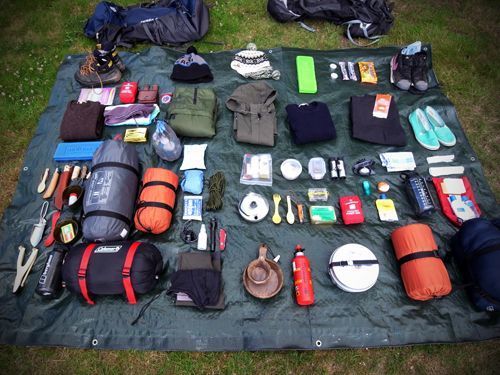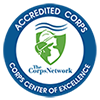
Gear List
Welcome | First Day | FAQs | Gear | About the Area | The Field Guide Blog
How do I prepare?
Check out the lists below to prepare for your season!
Remember, CCNM crews can work in very different ecosystems across the southwest. Your crew might be traveling to projects across the state, passing from desert landscapes, to rainy plateaus, to snowy mountain peaks - and you must come prepared it all. Field Staff and Supervisors are available during orientation to review your gear.
Once you receive your first CCNM paycheck, you will have access to Pro Deals for heavily discounted gear. Please refer to the about the area page for local gear access. There may be some gear available to borrow - ask CCNM staff if you have questions!
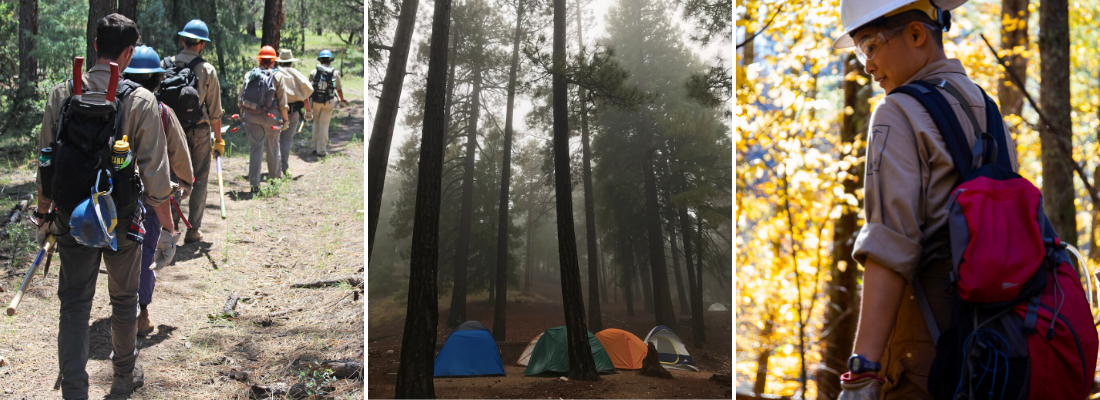
**Note that some of the required gear may vary depending on your specific crew. Contact the CCNM office if you have any questions about what you need to bring.
Required Gear:
- Boots: a good pair of solid work boots or hiking boots. They should have a solid toe (does not have to be steel toe), a high traction sole, and cover your ankles. Well-fitting and broken-in boots are best, wear them as much as possible before the first day! Please note there are different boot requirements for chainsaw crews (see below).
- Tent: 1-3 person tent with a 3 season rating is recommended. Rental tents may be available.
- Sleeping Bag: 0 degree F sleeping bag recommended. Depends on season and region. Talk to CCNM office staff for specifics about your crew location.
- Rain Gear: Both a waterproof jacket and waterproof pants that fit over your normal work clothes.
- Sleeping Pad: Therm-a-Rest or other insulating mat.
- Pants: One or two pairs of sturdy work pants. Carhartts, Dovetails, uniform pants, or sturdy denim work well.
- Socks: Multiple pairs of wool, wool blend, or synthetic socks that are comfortable with your hiking boots. Cotton socks are not recommended.
- Daypack: Must be large enough to hold all of your gear, food, water, and clothing layers for the day.
- Water Containers: you must have enough containers to hold 4 liters, or 1 gallon of water.
- Headlamp or small flashlight: Don't forget spare batteries.
- Toiletries: Keep it simple! Small supply of biodegradable soap, toothbrush, toothpaste, hand sanitizer, feminine hygiene products (bring extra just in case), comb, wet wipes or bandanna. Do not bring overly scented items, perfumes, make-up, or electrical appliances. Remember, you are responsible for your own disposal of toiletries (pack it in, pack it out!).
- Medications: Crew members are responsible for administering their own medications and managing their health. Bring extra medication if possible, and let others on your crew know where it's located in case of an emergency.
Required for some crews, but not all:
- Backcountry Pack: at least 4500 cubic inches. Not required for all crews, check with staff.
- Chainsaw Boots: must be all leather, lace-up, and be at least 6 inches high. See additional gear guide below for more details.
Recommended Gear:
- Jacket or Fleece: something that you can wear over your clothes at work during chilly mornings.
- Long Underwear: If working during Winter, Fall, or early Spring. Both tops and bottoms. Wool or synthetic materials are recommended. Cotton will not keep you warm if it gets wet.
- Alarm: watch or small clock to wake yourself up in the morning. Remember not all project sites will have cell service or the ability to charge your phone.
- Chapstick/Sunscreen/bug spray
- Tupperware or lunch container: Should be large enough to hold 2 sandwiches. Glass is not recommended.
- Camp clothes: comfortable clothing to change into at the end of the work day. No offensive graphics please.
- Warm Hat and Gloves
- Camp Shoes: Highly recommended! A pair sandals or comfy shoes to change into at the end of the workday. Let those feet breath!
- Shorts and/or bathing suit.
- Long Sleeve Work Shirt: to protect you from the sun.
- Hat with a brim: baseball hat, visor, or other brimmed hat for shade.
- Sunglasses
- Bandana or Washcloth
- Small Pocket Knife or multi tool.
- Ziploc Bags: for food storage and for keeping personal items dry and organized.
- Sewing kit or patch kit
- Personal First Aid Kit: Small kit of personal supplies to supplement the crew first aid kit provided by CCNM.
- Sleeping Bag Liner: A liner for your sleeping bag can boost the warmth rating by a few degrees. Some people also like to have a sleeping bag liner as they are easier to wash than the sleeping bag itself, and can help keep your bag clean.
Fun Items:
- Books or other reading material
- Cards or small games
- Camera
- Journal, pens and pencils, postage stamps
- Musical instruments
DO NOT BRING:
- Valuables: if you do bring things of value, be sure to store them in a vehicle or a safe place to prevent theft.
- Drugs and Alcohol
- Firearms, weapons, fireworks or explosives
- Pets
- Clothing with inappropriate or offensive graphics

Gear Stores:
Outdoor gear purchasing options are slim in Las Cruces. It is always worth checking out thrift stores for work clothes and camping gear before purchasing new. Las Cruces has a Goodwill, Savers, and many other thrift stores.
Ride On Sports: Primarily a local bike store. They have a limited selection of backpacking gear and other hiking essentials.
Sportsman’s Warehouse, DICKS’s Sporting Goods, and Big 5 Sporting Goods: large chain retailers that have a selection of outdoor gear.
Cabela’s El Paso: Less than an hour from Las Cruces, Cabela’s has a large selection of outdoor gear.
Columbia Factory Store El Paso: Less than an hour from Las Cruces, Columbia Factory has discount Columbia clothing.
REI: If you’re really looking for an outdoor store, the closest REI to Las Cruces is 4 hours away in Albuquerque, NM or Tucson, AZ. Check them out online and order what you want to the Las Cruces office.
Detailed Gear Recommendations below!
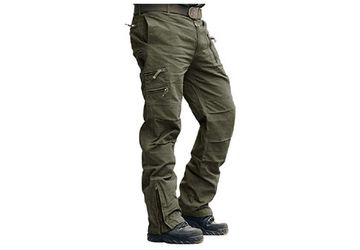
Work Pants
Work pants should be durable canvas or denim that will hold up hiking, bending, squatting, and more. Consider brands such as Dickies, Arborwear, Dovetail, Ben Davis, or Carhartts. Women's pants can be especially challenging to find, but you can look into Red Ant Pants, Gamine Workwear, Dovetail Workwear, as well as women specific Carharts and Dickies.
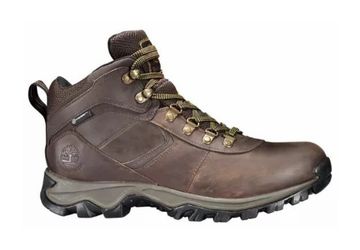
Work Boots
Work boots/hiking boots do not need to be all-leather, but do need to have a sturdy toe and cover your ankle. A steel toe is not required. When shopping for boots, trying them on in person is highly recommended! Consider that you may be asked to hike many miles in these shoes, so comfort is key. Consider brands such as Vasque, Asolo or Scarpa, but any brand that fits the requirements and is comfortable will be fine. If you are purchasing new boots, try to break them in as much as possible before your first day. Also consider bringing moleskin or athletic tape to help mitigate blisters.
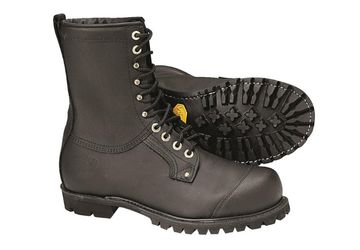
Chainsaw Boots
If you are on a chainsaw crew, the requirements for boots are different. Saw boots MUST be all leather, lace up, and 6” or taller with Vibram soles. Brands such as Redwing, Danner, Georgia Boots, Whites, and Timberland all make appropriate saw boots. Saw boots do not need to have a steel toe.
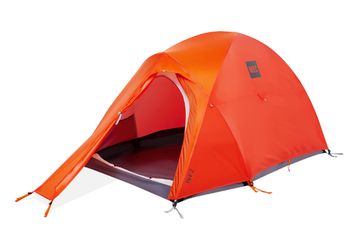
Tent
When purchasing a tent, it's most important to consider what will keep you and your gear comfortable and dry. A tent with a full rain-fly and a ground cloth/tarp are highly recommended. Size wise, you should consider anything from a 1-3 person tent. There are many great brands of tents on the market these days. Kelty, REI, Sierra Designs, MSR, Mountain Hardware, and The North Face are just a few to consider. Avoid Colman brand or other tents purchased at Walmart, since they typically do not hold-up will or stay waterproof.
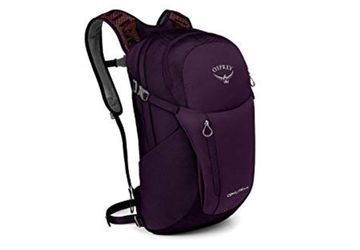
Daypack
All crews are required to have a daypack. This is a backpack that will hold all of your water (at least 1½ gallons), food, and rain gear for the day. Finding a pack that is comfortable is important. There are many great brands of daypacks, a few good ones include: Kelty, Ospray, Gregory, REI, Deuter, etc. A pack with a waist strap is recommended, as it helps reduce strain on your shoulders.
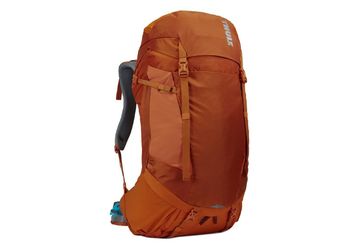
Backcountry Pack
Backcountry packs are NOT required for all crews, or for all projects. On frontcountry projects, a large duffle bag that can hold all of your gear will work. If you are looking to purchase a backcountry pack, you should consider one with a capacity of 70-90 liters. If you have the chance to try packs on in person, it is highly recommended to do so! Find the pack that fits you best and is comfortable with weight in it. Internal frame packs are recommended. Osprey, Kelty, and Gregory are a few good brands to look into, and all have good warranties.
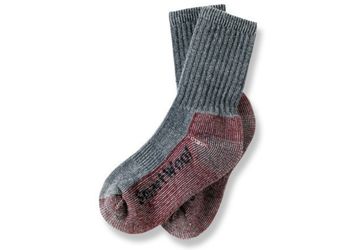
Socks
Believe it or not, socks can do wonders when it comes to improving your comfort on the trail. Wool, wool blend, or synthetic socks with a cushion that come past your ankle are highly recommended. You will want at least 2-3 pairs to rotate through. Some people like to bring a pair of "sacred socks" which are only worn at the end of the day in your sleeping bag, and help to both keep your sleeping bag clean and your feet warm at night.
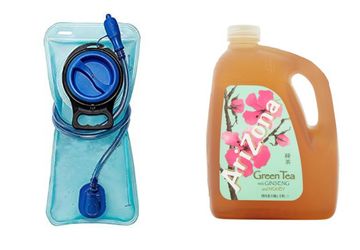
Water Containers
You should have enough water containers to hold at least 1 gallons of water. Some people choose to re-use Arizona Tea jugs, Gatorade bottles, or other sturdy containers with a screw on lid. This is a fine option, just be aware that these containers can break, and if you are frontcountry, it may be worth bringing a spare. Nalgene containers are very durable, and highly recommended! If you chose to bring a camelback, or other sort of hydration bladder, be aware of their tendency to puncture, and bring a patch kit and an extra Nalgene or container for back-up.
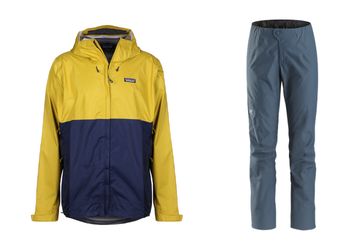
Raingear
Raingear should be durable enough to work in, and compact enough to fit in your daypack. Ponchos or disposable rain jackets are NOT recommended, due to their tendency to rip and get in the way. Rain pants should be large enough to fit over your work pants. White Sierra has a line of reasonably priced rain pants and rain jackets, brands such as REI, The North Face, Marmot and Mountain Hardware also work.
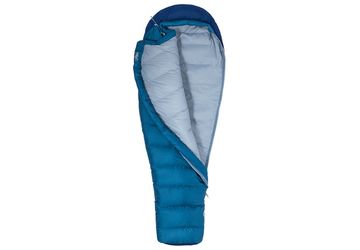
Sleeping Bag
Either down or synthetic down sleeping bags will work. Down bags have the advantage of being more lightweight and compact, but they will not keep you warm if they get wet. Down sleeping bags are more expensive and delicate than synthetic bags. Synthetic bags are bulky, but are significantly cheaper, and will still keep you warm, even when wet. Bags rated at 0 degrees F is recommended. You should also have a compression sack to store your sleeping bag in. Some people also like to bring a sleeping bag liner, which can increase your sleeping bag rating by a few degrees, and is easier to wash than your entire sleeping bag.
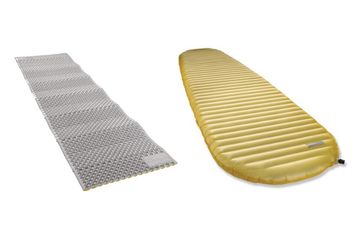
Sleeping Pad
You should have an insulating foam or inflatable sleeping pad such as a Therm-a-Rest or Ridge Rest. Therm-a-Rest, or other inflatable pads have the advantage of being lightweight and compact, but the disadvantage is that it's easy to puncture. Be sure to bring a patch kit with you if you use an inflatable pad. Do NOT bring an air mattress! They are easily damaged, and do not keep you warm.
Some folks double-up on the sleeping pads, and will bring both a foam and an inflatable mattress to stack on top of one another. This can be especially cozy during colder months, since it will add an additional layer of insulation.
Videos to help you pack & prepare!
REI: How to Choose Hiking Boots
Backpacker Magazine: Gear School
